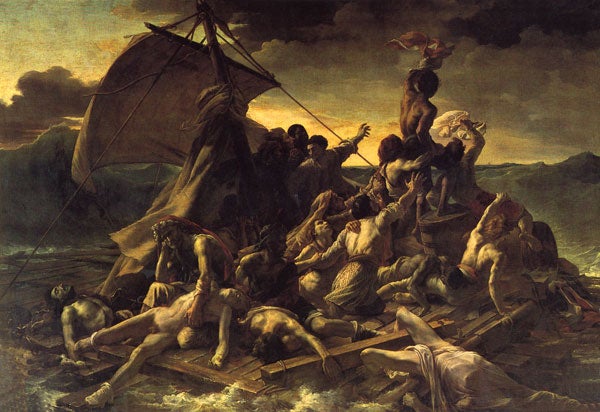Mea Culpa: Rishi Sunak, sailing on a raft around Belgium
Questions of style and language in last week’s Independent, reviewed by John Rentoul


We got our metaphors at sixes and sevens in a picture caption on Monday: “The prime minister is considering a raft of driver-friendly measures.” I imagined Rishi Sunak riding several cars lashed together as they were swept along by a flood, which may or may not have been caused by climate change, having just seen some rather dramatic footage from China. But in the photo itself he was indoors standing next to what looked like an exhibit of an old racing car.
The report, which was about Labour criticism of the prime minister’s “helicopter lifestyle” mentioned helicopters and cars, but not rafts, or boats of any kind.
New Magellan? Elsewhere the same day, we briefly paraphrased comments by Peter Mandelson, the former business secretary and EU trade commissioner, as saying that trying to “circumnavigate” Brussels was always going to backfire. Perhaps he was trying to do it on a raft, with a backfiring engine, on a grand tour of the continental European canal network. But no, we meant “circumvent”. Lord Mandelson was criticising the British government for seeking to go around the European commission by trying to do deals directly with EU governments.
Unearthly foreign orbiter: Charlotte Cripps wrote last weekend about the time a UFO “nearly landed on my car”. She said: “Critics will say that it wasn’t a UFO.” We know what she meant, of course, but as Mick O’Hare points out, the meaning of UFO seems to have shifted. What she saw was certainly an unidentified flying object, in that, if it existed at all, it was a flying object that couldn’t be identified.
What she meant is that her critics will say that it wasn’t an extraterrestrial craft. Which I think it probably wasn’t.
Unpredictable: There has been a lot of weather in the news in the past few days. We reported the view of the Meteorological Office that Britain would become “occasionally warmer” towards the end of the month. Then we wanted to set out an opposing thought and said: “However, it caveated that a prolonged dry and hot spell was not likely.” It is not actually illegal to use “caveat” as a verb, but it is ungainly and in this case unnecessary. “However” already does the work of introducing a contrasting idea, so we could just say “it said” or “it added”.
We went on to say that the Met Office “forecasted” that “the driest weather will most likely be found in parts of the West and South”. Thanks to Paul Edwards for pointing out that this is an unconventional form of the verb “forecast”. I don’t know why, but “forecast” is one of those words that doesn’t usually add an “–ed” in the past tense. It can’t be because it ends in a “t”, because so does “predict”, which becomes “predicted”, although shorter words such as “put” and “shut” don’t add an “–ed”.
Fly like a deer: On Wednesday, our “On This Day” feature included this: “1100: William II of England was killed by an arrow in the New Forest, allegedly mistaken for a deer.” As John Armitage pointed out, the first parsing of this sentence would be that the arrow was (allegedly) mistaken for a deer. We know what was meant, especially if we know the story of William Rufus, but we should not make the reader work so hard.
Join our commenting forum
Join thought-provoking conversations, follow other Independent readers and see their replies
Comments
Bookmark popover
Removed from bookmarks